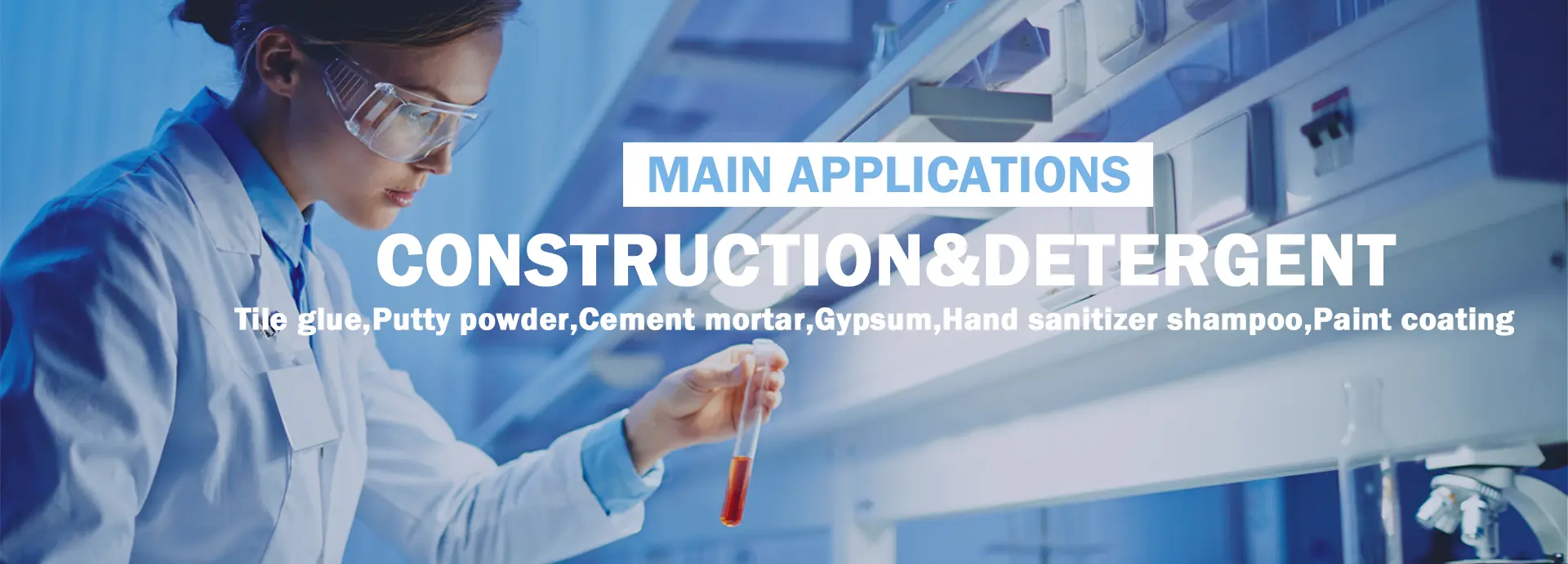Understanding HPMC Powder Applications, Benefits, and Properties
Hydroxypropyl Methylcellulose (HPMC) powder is a versatile substance widely used in various industries, including pharmaceuticals, food, construction, and cosmetics. This cellulose derivative, known for its unique properties, plays a crucial role in enhancing the performance and quality of numerous products. In this article, we will delve into what HPMC powder is, its applications, benefits, and its significance in different fields.
What is HPMC Powder?
HPMC powder is a non-ionic, semi-synthetic polymer derived from cellulose, which is a natural polymer found in plant cell walls. The modification process involves introducing hydroxypropyl and methyl groups onto the cellulose backbone. This chemical modification endows HPMC with several favorable characteristics, including increased solubility, improved thermal stability, and enhanced binding capabilities. HPMC is available in various grades, each tailored for specific applications due to differences in molecular weight and the degree of substitution.
Applications of HPMC Powder
1. Pharmaceuticals HPMC is extensively used in the pharmaceutical industry as an excipient in drug formulation. It acts as a binder and disintegrant in tablets, ensuring uniformity in tablets' weight and content. Additionally, HPMC is utilized in controlled-release formulations due to its hydrophilic nature, which allows for a gradual release of drugs in the body.
2. Food Industry In the food industry, HPMC serves as a thickening agent, stabilizer, and emulsifier. It enhances the texture and viscosity of various food products, including sauces, dressings, and bakery items. Moreover, HPMC is often used in gluten-free products to improve the elasticity and texture, creating a better mouthfeel.
hpmc powder

3. Construction HPMC powder is a key ingredient in construction materials such as cement, mortar, and plaster. It improves the workability and bonding properties of these materials. When added to tile adhesives and self-leveling compounds, HPMC enhances water retention, allowing for better adhesion and reduced cracking.
4. Cosmetics In the cosmetic industry, HPMC is employed in personal care products, including lotions, creams, and gels. Its ability to provide a smooth texture and improve the stability of emulsions makes it an ideal ingredient in formulations. HPMC also acts as a film-forming agent, providing a protective barrier on the skin.
Benefits of HPMC Powder
One of the primary benefits of HPMC powder is its excellent solubility and gel-forming properties, which allow it to function effectively in various applications. It is also non-toxic and biodegradable, making it a safe choice for consumer products. Additionally, HPMC is free from allergens, which makes it suitable for people with sensitivities.
Another significant advantage is its thermal stability. HPMC can withstand a wide range of temperatures without degrading, which is critical in many industrial applications that involve heat processing. Furthermore, HPMC exhibits low viscosity at low concentrations, making it easy to handle and incorporate into different formulations.
Conclusion
HPMC powder is an essential ingredient across multiple industries due to its unique properties and versatility. From enhancing drug formulations in the pharmaceutical sector to improving the texture of food products and providing stability to construction materials, HPMC plays a pivotal role in product development. As industries continue to innovate and seek sustainable solutions, the demand for HPMC powder is expected to rise, making it a crucial component in future developments. Understanding its properties and applications can help manufacturers harness its full potential, benefiting both businesses and consumers alike.
-
Rdp Powder: Key Considerations for Wholesalers in the Building Materials IndustryNewsJul.08,2025
-
Key Considerations for Wholesalers: Navigating the World of Hpmc - Based ProductsNewsJul.08,2025
-
Hpmc Detergent: Key Considerations for WholesalersNewsJul.08,2025
-
Key Considerations for Wholesalers: China Hpmc For Tile Adhesive, Coating Additives, Concrete Additives, and MoreNewsJul.08,2025
-
Crucial Considerations for Wholesalers: Navigating the World of Construction MaterialsNewsJul.08,2025
-
Key Considerations for Wholesalers Sourcing Additive For Cement, Additive For Concrete, Additive For Putty from Additive Manufacturer Shijiazhuang Gaocheng District Yongfeng Cellulose Co., Ltd.NewsJul.08,2025




